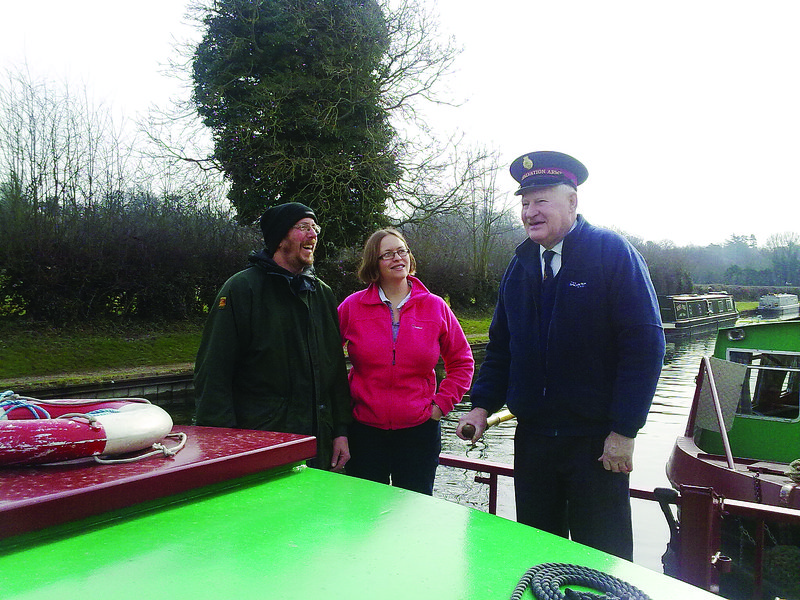Always on the move - care along the waterways
10 March 2021
10 March 2021
 It sounds an idyllic way to live: drifting along the waterways with the rat race well behind you. Your home is a boat and all your possessions are tucked in around you.
It sounds an idyllic way to live: drifting along the waterways with the rat race well behind you. Your home is a boat and all your possessions are tucked in around you.
In fact, of the 35,000 boats on England’s waterways, more than 7,000 are people’s homes, rather than a quirky idea for a holiday.
For a number of them, however, it’s far from a dream.
Waterways chaplain Lorraine Newman says that some of the challenges are immense.
“As wonderful as the waterways, towpaths and canals seem to those visiting them in the height of summer, there are also down times,” she said.
Many boat dwellers do not have a permanent mooring and move every fourteen days to comply with their ‘continuous cruising’ licence. This makes it hard for children to access education and for those without transport to find permanent work.
Most people living afloat do not have a postcode, so accessing health services, opening a bank account, registering to vote or applying for benefits is really tough.
Councils find it difficult to understand this unique set of circumstances and so claims can often take up to three months to process, leaving boaters in poverty.
Lorraine said chaplains link with the Canal & River Trust (CRT) welfare officers and the boating communities are beginning to trust and value their understanding of the confidentiality of each individual case.
“Our teams of chaplains have supplied food, bags of solid fuel, replacement gas bottles, warm boots, clothing, a reconditioned multi-fuel stove and even a new chimney,” she said.
“We’re also available to assist people with housing benefit applications and so on. This helps them become financially settled.
“We are building in modern communication technologies, like Twitter, email, Facebook, WhatsApp & BBM to keep in touch with the waterways users.”
The Waterways Chaplaincy is part of an ecumenical organisation called Workplace Matters, representing six Churches: Anglican, Baptist, Methodist, Roman Catholic, Salvation Army and United Reformed. It started six years ago with two chaplains on a short stretch of the Grand Union Canal around Hemel Hempstead.
The work quickly grew to include the Grand Union as far as Braunston, the Rivers Lee and Stort and the River Great Ouse. Now, there are more than 30 volunteer chaplains including on the Peak Forest Canal, the Birmingham Canals, Coventry, the Gloucester and Sharpness, and the Kennet and Avon.
Six chaplains live on boats while the others visit the tow path regularly.
Sometimes the chaplains find themselves alongside families at the worst possible time.
“Instances of suicide along the canal and river network are not uncommon,” said Lorraine. “We have been able to share conversations encouraging and enabling people to turn away from that particular option but on one occasion it was a case of talking to the boaters after a young man had chosen to end his life.
“Our availability is key. For boaters and residents it was a terrible situation and we were able to provide pastoral support in difficult circumstances.”
The average age of people who live aboard is over 50, said Lorraine.
“Many couples take to canal living in later life and when one of those partners passes away life can become difficult for the other, especially coping with loneliness and isolation.
“As we walk the towpath and say hello to everyone we find lonely people. Over a cup of tea one widow with no-one to talk to was able to share her story and find some comfort. It is always a privilege to pray with someone, whether it is on their boat or on the towpath.”
Volunteer chaplains are trained and equipped with special jackets and a lock key. They walk a chosen stretch of towpath and keep in touch by email and organised meetings.
“Our volunteer chaplains include a retired consultant anaesthetist, a magistrate, teachers and ministers and Workplace Matters are calling for more people to join.”
This article originally appeared in the connexion magazine, issue 2.
Photo: © Ancilla Andrew, TMCP